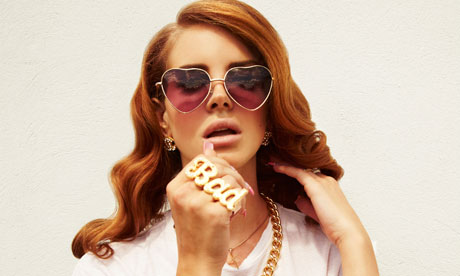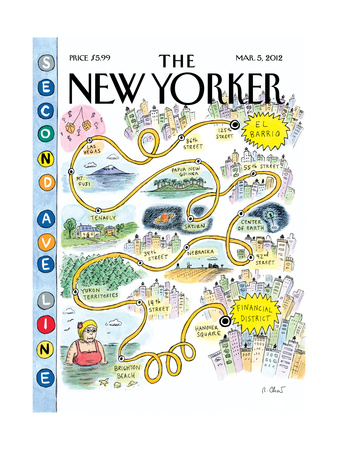Yo guys. Long time no speak. I've just started a new blog on wordpress. It's real pretty.
Hit that shit up. I promise I'll write plenty. Shooting at: arts reviews, science writing, general philosophising. And it won't be anywhere near as all over the place as that sounds.
And here's an awesome picture:
Have a beautiful day.
Lolita Del Rey
Thanks to the arrival of Spotify in Australia (whose incredibly annoying ads have already pretty much completely driven me away) I've been listening to a couple of albums that I would never have actually bought, or gone to the trouble of chasing on Youtube. This is a bit of a problem, seeing as it posts everything you listen to on Facebook. Everyone now knows I've been listening to Lana Del Rey.
I heard her breakout hit, Videogames, on Youtube with everyone else, and loved it as much as everyone seemed to. Her stoner-seductive aesthetic, with the naturally accompanying bored, weed-husky voice, went nicely with the hypnotic smoke-haze looping of the song itself. When she was 'unmasked' as nowhere near as trailer-trash as we'd been meant to think, well, that seemed to work pretty well too. Somehow, rich girl fantasising about life on the hood of a pick-up truck seemed just even more fitting--probably because the music was already way more about fantasy than reality. By the time we found out she couldn't really sing live, the fact could hardly have been less relevant. It just added to the spectacle.
So anyway now I've been listening, the past few days, to the album, which she (or They) have called "Born to Die." It's a predictably top-heavy record: three of the first four tracks are singles, and only one of the remaining eleven. Maybe this goes without saying--no-one expected this to be anything but a pop album. More interestingly, it's also an album that is single-mindedly devoted to character. Throughout, the songs work to build Del Rey's character. The first track, also called "Born to Die," opens with a flourish of strings, then a beat and some backup singer sighing. When Del Rey's voice comes in, it has all the bored/seductive resonance "Video Games" lead us to expect, that combination of fate and apathy. The lyrics, like the music itself, are a baroque redux of Video Games' sexy-stoner imagery. "Video Games" had the flirt of "I heard that you like the bad girls / Honey, is that true?" "Born to Die" has the dragged out, ominous "You like your girls insaaane." Over the whole record, she doesn't break character once. It creates an aesthetic a friend of mine described as "Hollywood sadcore." Not sure whether that's actually his creation or not, but I think it's pretty perfect.
One aspect of that character that is played up on the record is Del Rey's (literal) flirting with innocence. "Video Games" had notes of this; I think one of the song's loveliest moments is the teasingly innocent lift in her voice as she sings the above quoted bad girls line. You don't need to be watching the clip to see her eyelids bat there. But this dynamic gets amped way up in a couple of songs here. I'm thinking "Off to the Races," a song heavy on lines quoted from Lolita. The song starts off muddy and weak, chugging on lines like "he loves me with every beat of his cocaine heart." But it kicks into gear when Del Rey lifts her voice into an innocent squeak and sings "Light of my life, fire of my loins / be a good girl and do what I want."
She channels a Lolita chacter all through the song, an the album as a whole. A later (weaker) track is actually for the book. And we realise something we might not quite have got earlier. Del Rey's character is not just bad girl: often, it is also bad little girl. Creepy. But everyone knows by now that it is all an act, all the way down. The flirts of faux-innocence scattered liberally through Born to Die are part of what lifts the performance into tasty madness. Lana Del Rey is a great fake mirage of dirty insanity. And that's what makes her album so entertaining.
I heard her breakout hit, Videogames, on Youtube with everyone else, and loved it as much as everyone seemed to. Her stoner-seductive aesthetic, with the naturally accompanying bored, weed-husky voice, went nicely with the hypnotic smoke-haze looping of the song itself. When she was 'unmasked' as nowhere near as trailer-trash as we'd been meant to think, well, that seemed to work pretty well too. Somehow, rich girl fantasising about life on the hood of a pick-up truck seemed just even more fitting--probably because the music was already way more about fantasy than reality. By the time we found out she couldn't really sing live, the fact could hardly have been less relevant. It just added to the spectacle.
So anyway now I've been listening, the past few days, to the album, which she (or They) have called "Born to Die." It's a predictably top-heavy record: three of the first four tracks are singles, and only one of the remaining eleven. Maybe this goes without saying--no-one expected this to be anything but a pop album. More interestingly, it's also an album that is single-mindedly devoted to character. Throughout, the songs work to build Del Rey's character. The first track, also called "Born to Die," opens with a flourish of strings, then a beat and some backup singer sighing. When Del Rey's voice comes in, it has all the bored/seductive resonance "Video Games" lead us to expect, that combination of fate and apathy. The lyrics, like the music itself, are a baroque redux of Video Games' sexy-stoner imagery. "Video Games" had the flirt of "I heard that you like the bad girls / Honey, is that true?" "Born to Die" has the dragged out, ominous "You like your girls insaaane." Over the whole record, she doesn't break character once. It creates an aesthetic a friend of mine described as "Hollywood sadcore." Not sure whether that's actually his creation or not, but I think it's pretty perfect.
One aspect of that character that is played up on the record is Del Rey's (literal) flirting with innocence. "Video Games" had notes of this; I think one of the song's loveliest moments is the teasingly innocent lift in her voice as she sings the above quoted bad girls line. You don't need to be watching the clip to see her eyelids bat there. But this dynamic gets amped way up in a couple of songs here. I'm thinking "Off to the Races," a song heavy on lines quoted from Lolita. The song starts off muddy and weak, chugging on lines like "he loves me with every beat of his cocaine heart." But it kicks into gear when Del Rey lifts her voice into an innocent squeak and sings "Light of my life, fire of my loins / be a good girl and do what I want."
She channels a Lolita chacter all through the song, an the album as a whole. A later (weaker) track is actually for the book. And we realise something we might not quite have got earlier. Del Rey's character is not just bad girl: often, it is also bad little girl. Creepy. But everyone knows by now that it is all an act, all the way down. The flirts of faux-innocence scattered liberally through Born to Die are part of what lifts the performance into tasty madness. Lana Del Rey is a great fake mirage of dirty insanity. And that's what makes her album so entertaining.
Unspeakable Acts of Privacy
- Are you single?
- Have you been tested for STDs in the past month?
- What is your favourite sex position?
- Do you have any secret fantasies or fetishes?
- Would you please take off your shirt?
- Kiss me, now.
This was only a small part of a suprisingly ambitious performance put on (and put together) by UQ drama students, under the direction of Zen Zen Zo founder Lynne Bradley. The show 'began' before it actually began, with a form for everyone to fill in with moderately private information, and a privacy policy to sign, a la Facebook. I was already loving the experience, anticipating deliciously confronting public reveals of our private information, foolishly divulged.
From there, the audience was gathered on some Schonell theatre steps, and a troop of aggressive dancers materialised before us, appearing ninja-like from apparently empty surroundings. That was the beginning of an adventure--the term is no exaggeration--that would lead us not just into stranger's cars, but all around an eerily transformed UQ campus. I'd never realised just how 'promenade' promenade theatre could be.
The general feel of prison-camp melodrama gained part of its success from the scattered moments of relief, of quiet--of poetry, even. At one point, I was pulled aside by a girl who delivered a gentle monologue about being a dancer, and the way in which her body no longer felt like her own. These gentler points were not always integrated convincingly into the larger structure of the performance, but they did provide thought-provoking contrasts in tone, as well as some excellent writing and acting.
"Unspeakable Acts" faltered when it abandoned its atmospheric, visceral approach to its theme in favour of more straightforward didacticism. A section on the disturbing iPhone app Girls Around Me, for example, could not have been any preachier, or less theatrical. The messages of the play resonated best when left unspoken.
What was perhaps most impressive about "Unspeakable Acts," though, was its sheer scale. The audience was continually splintered throughout into smaller and smaller groups, all lead through different experiences, rejoining at various points. My experience of the play was only one of many possibilities. My girlfriend and sister, for example, spent time helping one actor stalk another, and described it as a highlight. Maintaining the complexity of this structure, with the careful choreography required to keep everyone where they need to be when they need to be there, over such a large physical area, was a stunning technical achievement.
Congratulations to everyone involved. "Unspeakable Acts" was a genuinely impressive piece of theatre. It's even convinced me to fix my Facebook privacy settings.
MoviePlayPoemPubBeerBookSong (Hysterical and Useless)
(Some distracted reviews). (Sleep deprived reviews also).
Movie: The Avengers
It's hard to review something after reading a review of that something. I read a review that said something about how the acting, the actors, lift a pretty typical superhero movie into a really really good superhero movie, and now that's what I want to say. Maybe I only thought that because of the review. Maybe partly I didn't see the movie, but saw some amalgam of the movie and the review I'd already read. But I did really think myself that the acting made it. Never realised before that Robert Downey Jnr is someone fun to watch. So good. You should see this.
Play: Midsummer (a play with songs)
Funniest sex scene. And then to discover that Japanese rope bondage is apparently not a sex thing? Who knew. (You know, actually, what I thought was innocent wikipediaing suggests that maybe the play mislead me on that front). First half better than the second. Some nice songs. Like a not quite as good Boy Girl Wall. With Scottish accents. But that notwithstanding, not quite as good. You can see this if you like.
Poem: Matt Kahn's Email
Who is Matt Kahn? Should I know that? I know I like this. Emily XYZ makes me feel like it's 1989 in New York, whatever that feels like. JOHN STEWART MILL. JOHN STEWART MILL. JOHN STEWART MILL. (It slopes to the horizon). You should go listen to this.
Pub: The Bridge Club
Not strictly a pub, but it's alliteration! And rhyming! A new club thing upstairs at the Irish club. Saw Oscar + Martin there, who are excellent and were good, despite not being able to hear themselves. Despite also constant screeching feedback. But the point is, there are chandelier things. And wood panels. And one beautiful ceiling. With shamrocks and harps. And underneath, it's all skinny jeans and irony.You should check it out.
Beer: The Quiet American
A splendiferous Little Creatures single batch taking an American hop spin on a Trappist ale. Packs a beautiful punch. How do you review beer? Fruity. Bitter. Alcoholy. Good. You should get some while you can.
Book: Falling Man
This was nice and short last week. Dellilo's got a magic way with a sentence. I read somewhere he worries himself over the heights of the letters in his sentences, the shorts and talls, banging away at a manual typewriter. This one, though, falls a bit flat. All ends up a bit... meh. You should go with White Noise instead.
Song: Vomit
Been playing this all day. So should you.
...And now, so I'll never have to write a review as bad as these again, I'm off to a lecture on reviews.
Movie: The Avengers
It's hard to review something after reading a review of that something. I read a review that said something about how the acting, the actors, lift a pretty typical superhero movie into a really really good superhero movie, and now that's what I want to say. Maybe I only thought that because of the review. Maybe partly I didn't see the movie, but saw some amalgam of the movie and the review I'd already read. But I did really think myself that the acting made it. Never realised before that Robert Downey Jnr is someone fun to watch. So good. You should see this.
Play: Midsummer (a play with songs)
Funniest sex scene. And then to discover that Japanese rope bondage is apparently not a sex thing? Who knew. (You know, actually, what I thought was innocent wikipediaing suggests that maybe the play mislead me on that front). First half better than the second. Some nice songs. Like a not quite as good Boy Girl Wall. With Scottish accents. But that notwithstanding, not quite as good. You can see this if you like.
Poem: Matt Kahn's Email
Who is Matt Kahn? Should I know that? I know I like this. Emily XYZ makes me feel like it's 1989 in New York, whatever that feels like. JOHN STEWART MILL. JOHN STEWART MILL. JOHN STEWART MILL. (It slopes to the horizon). You should go listen to this.
Pub: The Bridge Club
Not strictly a pub, but it's alliteration! And rhyming! A new club thing upstairs at the Irish club. Saw Oscar + Martin there, who are excellent and were good, despite not being able to hear themselves. Despite also constant screeching feedback. But the point is, there are chandelier things. And wood panels. And one beautiful ceiling. With shamrocks and harps. And underneath, it's all skinny jeans and irony.You should check it out.
Beer: The Quiet American
A splendiferous Little Creatures single batch taking an American hop spin on a Trappist ale. Packs a beautiful punch. How do you review beer? Fruity. Bitter. Alcoholy. Good. You should get some while you can.
Book: Falling Man
This was nice and short last week. Dellilo's got a magic way with a sentence. I read somewhere he worries himself over the heights of the letters in his sentences, the shorts and talls, banging away at a manual typewriter. This one, though, falls a bit flat. All ends up a bit... meh. You should go with White Noise instead.
Song: Vomit
Been playing this all day. So should you.
...And now, so I'll never have to write a review as bad as these again, I'm off to a lecture on reviews.
Stealing Stuff (like this post)
Sorry about the lack of posts lately. Hopefully this gem from Slate might make up for it.
 |
CAN I MAKE STUFF UP? |
|
|
|
 |
Journalist
If you make stuff up as a journalist, you will be considered such a liar that the state of California won’t let you become a lawyer. |
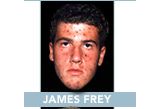 |
Memoirist
If you make stuff up as a memoirist, Oprah will excoriate you on the air, and your publisher will refund duped readers the cost of your book, but you may have a lucrative second career employing young writers to pump out popular fiction. |
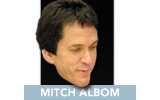 |
Columnist
If you make stuff up as a columnist, you will get suspended. Then you can write your column again. |
 |
Monologist
If you make stuff up as a monologist, Ira Glass will be very disappointed in you, but lots of people will defend the “greater truth” of your story. |
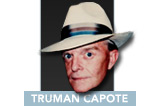 |
Nonfiction Novelist
If you make stuff up as a “nonfiction novelist,” people will call you out on it eventually, but you’ll still go down as a great writer (especially if you die prematurely). |
 |
Humorous Journalist
If you make stuff up as a humorous journalist, the editor-in-chief of The New Yorker will be heartbroken. |
 |
Biopic Director If you make a movie “based on a true story” that includes made-up stuff, journalists will write articles pointing out where you were wrong, but you might win an Oscar anyway. |
 |
Historical Novelist If you make stuff up as a historical novelist, people will point out on Wikipedia that you were wrong and evaluate your claims on TV, but you can still make the bestseller list. |
 |
Period-Piece Showrunner If you make stuff up for your mostly historically accurate TV show, linguists will scrutinize your every misstep and magazine journalists will compare your show to their memories, but you’ll still be a critical darling. |
 |
Humorist If you make stuff up as a humorist, The New Republic will fact-check the dickens out of you, but most people will say your lies are OK, especially if they’re just about your personal life. |
 |
Stand-Up Comedian If you make stuff up as a stand-up comedian, no one will care (unless you lie about where your jokes came from.) |
 |
Songwriter If you say you had a “good day,” bloggers will fact-check you twenty years after the fact. But they will still love the song, even if it wasn’t exactly true. |
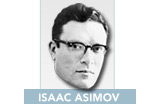 |
Science Fiction Writer If you make stuff up as a science fiction writer, you will be honored as a visionary. (Unless you convince millions that your stories are true and found a church, in which case you will be derided as a nut.) |
 |
Fantasy Writer If you make stuff up as a fantasy writer, you will earn a place in the hearts of children everywhere. But some fundamentalist Christians might burn your books. |
 |
Might get around to posting in more detail about a couple of these. I've been thinking about the Wallace one a bit, of course. Soon! Something soon, I promise.
Fact Checking
Heard of Christian Marclay? "The Clock"? He's the present darling of the art world (or so it seems, from my complete outsider's perspective). "The Clock" is a twenty-four hour video-art piece made up of clips from movies featuring the current time. Sounds gimmicky at first, but reading the details in a terrific New Yorker article has got me pretty fascinated.
There's one sentence in the article I'm interested in here, though. In the section discussing Marclay's irritation with galleries not giving the work appropriate respect, the writer relates an anecdote about a Los Angeles museum wanting to project the work on their outdoor wall. The anecdote is followed by a qualification in parentheses:
I'm probably weird, but this struck me as hilarious. These bracketed A denies verbing B appear in New Yorker articles all the time, but they're usually more like "the notorious arms trader denies dealing with the Taliban" or "Exxon Mobil denies deliberately tarring birds" or "Politician denies the Mafia influence". So the gallery denying outdoor projection was pleasantly tame.
This must, I suppose, be the work of the fact checkers. Reading the Marclay piece, it seems pretty clear that the LACMA denies sentence was a later addition. The degree of fact-checking this implies is intriguing. Did the gallery really suggest projecting the clock outdoors? Talk about a fine-toothed comb.
Fact-checking, it turns out, is pretty much an American phenomenon. The New Inquiry has a really interesting article about this, dissecting its place in American culture. There's also a bit more about the Daisey affair, if that interests you. The London Review of Books has a bit of a lighter, shorter take on fact-checking too. The outsider take on American fact-checking there is pretty interesting.
Anyway, I'm hoping for more slightly ludicrous fact-check clarifications like the gallery denial.
There's one sentence in the article I'm interested in here, though. In the section discussing Marclay's irritation with galleries not giving the work appropriate respect, the writer relates an anecdote about a Los Angeles museum wanting to project the work on their outdoor wall. The anecdote is followed by a qualification in parentheses:
"(LACMA denies suggesting outdoor projection)."
I'm probably weird, but this struck me as hilarious. These bracketed A denies verbing B appear in New Yorker articles all the time, but they're usually more like "the notorious arms trader denies dealing with the Taliban" or "Exxon Mobil denies deliberately tarring birds" or "Politician denies the Mafia influence". So the gallery denying outdoor projection was pleasantly tame.
This must, I suppose, be the work of the fact checkers. Reading the Marclay piece, it seems pretty clear that the LACMA denies sentence was a later addition. The degree of fact-checking this implies is intriguing. Did the gallery really suggest projecting the clock outdoors? Talk about a fine-toothed comb.
Fact-checking, it turns out, is pretty much an American phenomenon. The New Inquiry has a really interesting article about this, dissecting its place in American culture. There's also a bit more about the Daisey affair, if that interests you. The London Review of Books has a bit of a lighter, shorter take on fact-checking too. The outsider take on American fact-checking there is pretty interesting.
Anyway, I'm hoping for more slightly ludicrous fact-check clarifications like the gallery denial.
Lines from the New Yorker (Mar. 5, 2012)
"“This Is Not a Film” was smuggled out of Iran on a flash
drive hidden in a cake.”
“The truth is that punitive, hysterical religions thrive,
while soft, mystical ones must hide their scriptures somewhere in the hot
sand.”
“And then you blink again and it’s three women, only one of
the women is shaped exactly like a vase.”
“But I’ll get back to Russia. I don’t know when. But I’m
still young. Your empire will collapse and I’ll get out of here.”
Subscribe to:
Posts (Atom)

